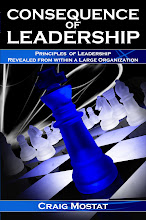The bag of cat food reads "new improved taste – your cats will love." How do they know that? Do cats even have a sense of taste?
Some say that the arctic ice cap is melting and will cause the sea levels to rise. However, when the ice in a beverage glass melts the liquid does not overflow. Reason: the level of water rises when the ice is put into the glass – it's called displacement as described in the law of buoyancy – which most learn in grade 6 science. Therefore, if all this ice floating in water has already displaced its weight, why will the sea levels rise if it melts? And yes, the ice is floating in water – there is no land on the top of the globe. Besides, how would you get sea ice on land?
It is irresponsible not to question. Some are educated beyond intelligence and common sense and lose sight of the basic truths. I actually presented the facts outlined above to an environmental scientist and stumped him. He had never considered this (and I am not referring to my new cat food).
Coca cola has declared that they will be donating money to help the Polar bears. Has the recession impacted the bears? Seriously, what will that money be used for? Supplying food would destroy them as they would lose their natural instinct to hunt on their own. If melting ice is endangering them, I don't think money can make the necessary ice required. Why do we think that the Polar bears are in trouble in the first place? Is this from the same people that declare sea levels will rise with melting ice? A five-minute fact check reveals the following: Polar bear populations have risen worldwide from 5,000 in 1950 to somewhere between 20,000 & 25,000 today, despite the hundreds killed every year through hunting. How does that translate into "Polar bears are in trouble?"
Common sense isn't all that common any more. It's not like there is a lack of information in today's world, but people generally believe what they hear on the six o'clock news without question. This kind of blind obedience has resulted in horrendous outcomes: such as communism in the former Soviet Union and the holocaust, which combined have been responsible for the murder of over 100 million people.
There is one source of the truth – it is not relative or situational. We used the think the world is flat. We used to think that certain races were inferior. We used to think we were heading into an ice age. What we believe determines how we act. Therefore, we must ensure that what we believe is true.
Accurate facts cannot be denied. Everyone has an opinion, but opinions are like noses – everyone has one and they usually have a couple of holes in them. Consider all points of view. Debate is one of the best methods to hear other opinions and points of view. Be skeptical. Be suspicious. Especially, If there is a reluctance to debate or back up opinions with facts.
The problems of the past could have been avoided if individuals sought after the truth. Future problems will be prevented with the same approach.
We all have a responsibility to question.



